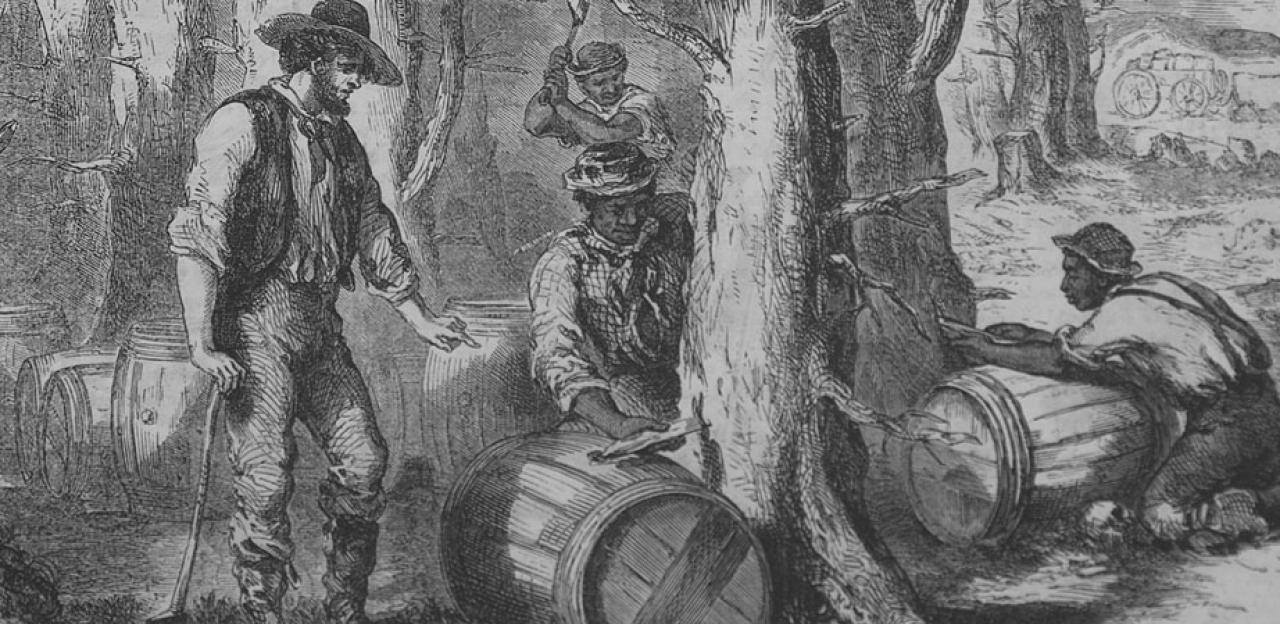

Virginia's small farmers could perceive a common identity with the large, because there was one even more compelling than those we have already noticed. And because Virginia's labor force was composed mainly of slaves, who had been isolated by race and removed from the political equation, the remaining free laborers and tenant farmers were too few in number to constitute a serious threat to the superiority of the men who assured them of their equality. The apostrophes to equality were not addressed to them. Slaves did not become leveling mobs, because their owners would see to it that they had no chance to. Professor Morgan puts it subtly: “Aristocrats could more safely preach equality in a slave society than in a free one. In “The Problem of Slavery in the Age of Revolution 1770‐1823,” David Brion Davis, Famam Professor of History at Yale, continues to explore shifting attitudes in the social order and society that he analyzed in his earlier book, “The Problem of Slavery in Western Culture.”īoth historians address themselves to the central contradiction of ethical ideas and suspended actions, providing rich documentation to underscore what now appears hypocritical and what then had a rationale. Morgan, Sterling Professor of American History at Yale University, begins at the beginning, in colonial Virginia, where the most eloquent advocates of freedom and independence drafted the documents of liberty, overlooking their own slaves. In “American Slavery, American Freedom,” Edmund S.

The authors use contemporary voices, sources and documents. Two solid works of modern scholarship grapple with the question without once resorting to computer readouts, microfiche, overnight Nielsens or similar sorcerer's apprentices.

THE PROBLEM OF SLAVERY IN THE AGE OF REVOLUTION 1770‐1823. AMERICAN FREEDOM: The Ordeal of Colonial Virginia. Why was not slavery openly mentioned? Where were the actual words bondage, slavery or Negro? Douglas saw the omission as a justification for his views on the “democratic” extension of slavery, but Lincoln had a generous interpretation: “It was hoped when it should be read by intelligent and patriotic men, after the institution of slavery had passed from among us, there should be nothing on the face of the great charter of liberty suggesting that such a thing as Negro slavery had ever existed among us.”ĪMERICAN SLAVERY. Douglas and Lincoln, debating, went deep into the wellsprings of liberty to fathom the meaning in the language of the Constitution. The question was still coming up a few years before the Civil War. “How is it that we hear the loudest yelps for liberty among the drivers of Negroes?” Samuel Johnson said, looking across the Atlantic contemptuously. It was a paradox 200 years ago and it remained so well into the next century.


 0 kommentar(er)
0 kommentar(er)
